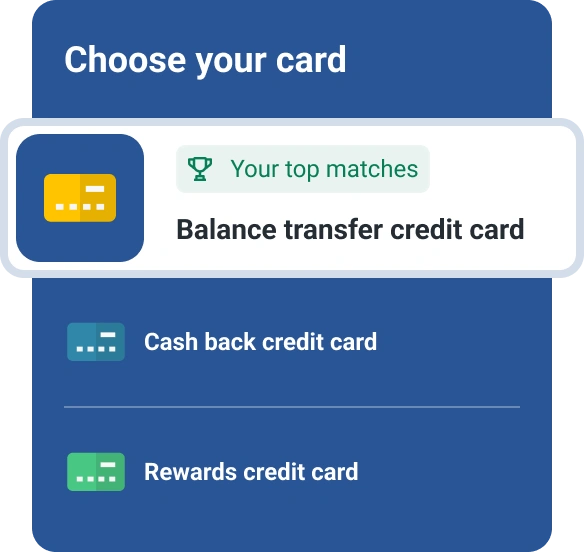3 Reasons to Pay More Than the Minimum on Your Credit Card
Quick Answer
Paying more than the minimum on your credit card can help you save money, improve your credit and pay off debt earlier.

Credit cards make purchasing easy by only requiring a small minimum payment on your credit card each month, typically 1% to 3% of the outstanding credit card balance. That means you could use your card to buy something for $1,000 but pay around $10 to $30 per month instead of the full amount upfront. But there can be serious consequences to only paying the minimum on your credit cards.
If you're not careful with your spending, you can fall into the "minimum payment trap" where you can only afford to pay the minimum amount due each month. Not only could this cost you hundreds or thousands of dollars in interest, but you'll also make little progress toward paying off the debt. Even so, 43% of credit card holders only pay the minimum amount due each month, according to a OnePoll study on behalf of Oportun.
You should try to pay more than the minimum on your credit card bill to save money, pay off credit card debt sooner and reduce your credit utilization ratio. Let's dive deeper into the details.
1. You Save Money
While making only the minimum payment on your credit card may make your budget more manageable each month, it could lead to more debt over time. While you're making minimum payments, the interest on the unpaid balance continues to grow, making it harder to pay off your debt.
Keeping a balance on a credit card account suggests that you may be spending more money than you're bringing in. Consider creating a budget and a debt repayment plan to ensure you have the cash to make payments above the minimum amount due each month. With regular payments above the minimum payment amount, you can reduce the amount of interest you owe and pay off your debt sooner.
2. You Pay Off Your Credit Card Balances Faster
When you only make the minimum payment, it can take a long time to pay off your balance completely.
For example, let's say you have a $5,000 credit card balance with a 20% interest rate. According to Experian's credit card payoff calculator, if you only make the minimum monthly payments of 3% of the balance, or $150, it will take you four years and two months to pay off the balance. You'll also pay $2,359.09 in interest charges on top of the principal $5,000 balance.
But if you increase your monthly payment to 6% of the balance, or $300, you could pay off the debt in only one year and eight months, shaving 30 payments off your repayment term. You'd also pay only $906.81 in interest, saving you $1,452.28.
| Minimum Payment | Higher Payment | |
|---|---|---|
| Credit card balance | $5,000 | $5,000 |
| Interest rate | 20% | 20% |
| Payment per month | $150 | $300 |
| Payoff time | 50 months | 20 months |
| Interest paid | $2.359.09 | $906.81 |
| Total amount paid | $7,359.09 | $5,906.81 |
| Amount saved | $0 | $1,452.28 |
3. You Reduce Your Credit Utilization Ratio
Paying more than the minimum on your credit cards will lower your credit utilization ratio, the percentage of available revolving credit you're using. Your credit utilization ratio is one of the most influential factors that determine your credit score, accounting for approximately 30% of your overall credit score. Generally, the higher your credit score, the lower your credit utilization and vice versa.
Financial experts often recommend keeping your credit utilization rate below 30%, but the lower, the better. Maintaining a low credit utilization ratio can help you demonstrate creditworthiness to potential lenders and build a positive credit history.
6 Strategies for Paying More Than the Minimum Credit Card Payment
Consider these six payment strategies to accelerate your credit card debt payoff plan.
1. Find Your Statement Balance
Paying off credit card debt starts with understanding how much debt you're dealing with. Check all your statements to get your statement balances, or what you owe at the end of a billing cycle. This is different from your current balance, which includes purchases and credits made after your statement closing date.
To avoid paying credit card interest and make quicker progress toward paying off your card, aim to pay the statement balance in full each month. This may be a significantly higher amount than the minimum payment. If paying your full statement balance isn't possible, calculate how much more you can afford to pay each month over your minimum card payment and work toward the goal of regularly paying your statement balance.
2. Stick to a Budget
Creating and sticking to a budget can help you identify areas to cut spending to help allocate more money to tackle credit card debt. Start your budget by noting your monthly income and all your necessary expenses. Then, prioritize higher payment amounts toward your credit card debt over nonessential spending, like dining and entertainment.
Also make a point to stop credit card spending, as it is counterproductive to any debt repayment plan. By limiting or even eliminating additional debt on your card, you'll keep the total amount owed on your credit card in check, making it easier (and faster) to pay down your card debt with higher monthly payments.
3. Increase the Margin in Your Budget
If you really want to fast-track your plan to zero out credit card debt, look for ways to cut spending or increase your income so you'll have more money to add to your credit card payments.
You can save money by canceling subscriptions and memberships you no longer use or can live without. Also, consider cutting back on dining and entertainment and look for alternatives like eating with your family at the park or playing games with friends.
On the other side of the ledger, volunteer for overtime at work or ask your employer for a wage increase if you're due one. Taking on a side hustle or a second job, even if it's only temporary, can help you earn extra cash you can use to pay over your minimum credit card payment.
4. Take the "Avalanche" Approach
Debt repayment strategies like the avalanche method can help you pay more than your minimum credit card payments. With the avalanche strategy, you prioritize paying down the credit cards you own that carry the highest annual percentage rate (APR).
You'll make minimum payments on each credit card, except the card with the highest interest rate, to which you allocate all your extra funds. Once that credit card is paid off, you repeat the process, always directing your extra cash toward your credit card with the highest APR. Ultimately, you'll pay off all your credit cards and save money by paying off credit cards with the highest interest rates first.
5. Build a "Snowball" Method
The debt snowball method is another debt repayment strategy that can help you gamify your debt reduction efforts. With this method, you'll make minimum payments on all your cards except the one with the lowest balance. Once you pay off that card's balance, you prioritize paying off the card with the next-lowest balance and repeat the process until all your credit cards are paid off.
While the debt avalanche method aims to save money in interest charges, the debt snowball method seeks to create quick wins that help you build momentum and motivate you to stick with your budget.
6. Switch to a Debit Card
When you use a debit card for spending, you're pulling from the money in your bank account, not borrowing money on credit. As such, you're less likely to overspend, which can help ensure you have enough money to pay more than the minimum on your credit card.
Additionally, using a debit card for spending can help you stay on track with your budget. When you charge purchases to a credit card, it's easy to lose track of your spending and end up over budget. By contrast, you can only use your debit card for the amount you have in your account.
Additional Options for Paying Off Credit Card Debt
If you're struggling to pay off your credit card debt, consider these three options to help erase your credit balances.
- Debt consolidation loan: With a debt consolidation loan, you take out a personal loan to pay off your existing credit card debt. Ideally, this option can help you pay off high-interest credit cards with a lower-interest personal loan, as well as allowing you to make only one monthly payment instead of several. The average credit card interest rate is currently 20.09%, while the average interest rate on a 24-month personal loan is 11.48%, according to the Federal Reserve. The interest rate you receive could be higher or lower than the average based on your credit score and other factors.
Personal loan calculator
The Bottom Line
Paying more than the minimum on your credit card can be daunting, especially if your budget is tight. By sticking to a budget and adding some financial breathing room to it, you can add more funds to your payment. Start by paying as much as you can afford while still meeting your other financial obligations. Consider following a debt repayment strategy that may save you money or improve your likelihood of success.
If high credit card balances are dragging down your credit score, consider signing up for Experian Boost®ø, which can give you credit for bills you already pay like utilities, streaming services and rent. Experian Boost also includes access to your Experian credit report and FICO® ScoreΘ, the score used by 90% of top lenders.
Don’t apply blindly
Apply for credit cards confidently with personalized offers based on your credit profile. Get started with your FICO® Score for free.
See your offersAbout the author
Tim Maxwell is a former television news journalist turned personal finance writer and credit card expert with over two decades of media experience. His work has been published in Bankrate, Fox Business, Washington Post, USA Today, The Balance, MarketWatch and others. He is also the founder of the personal finance website Incomist.
Read more from Tim

